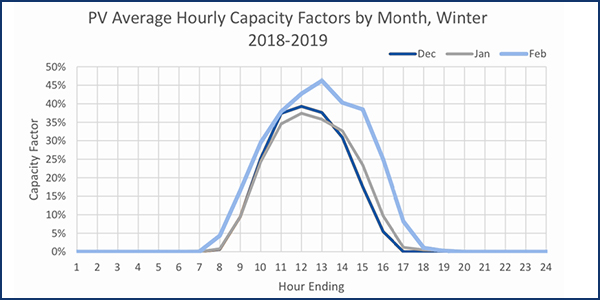By Michael Kuser
ISO-NE advised FERC on Friday that it is revising its fuel security analysis for Forward Capacity Auction 14 to assume more natural gas use and bigger contributions from renewables.
The RTO made the disclosure in its first annual informational filing comparing actual winter conditions with the triggers, assumptions and scenarios it used in the fuel security analysis.
The filing was required by the commission’s December 2018 order (ER18-2364) accepting the fuel security evaluations the RTO will perform to assess whether resources submitting retirement bids are needed during stressed winter conditions. The evaluations were approved as an interim measure for FCAs 13, 14 and 15 until the RTO can implement market-based mechanisms to address its fuel security challenges. (See ISO-NE Fuel Security Measures Approved.)
The commission required the filings in recognition that the fuel security study “is a newly developed process, is based upon a number of assumptions and is not addressed by the NERC reliability standards. As ISO-NE gains additional information and experience, we expect that the study assumptions, methods, scenarios and triggers may need to be further refined and updated.”
The initial analysis compares the assumptions used in FCA 13 — conducted in February for the 2022/23 delivery year — with winter 2018/19.
However, ISO-NE said it is not prudent to draw significant conclusions about its review methodology from last winter because it was very mild in comparison to the severe winter of 2014/15 used to develop the modeling assumptions.
The RTO nonetheless said it will adopt several revisions for FCA 14, based on input from the NEPOOL Reliability and Participants committees. (See NEPOOL MC Debates Energy Security Models.)
“Broadly speaking, these refinements increase the amount of natural gas and fuel oil that is modeled in the analysis, and further increase the capacity values of certain renewable resources. Collectively, these revisions tend to move the analysis in a less conservative direction,” the filing said.
RTO officials and other stakeholders participated in a public meeting with FERC staff on Monday on efforts to develop market-based mechanisms to ensure fuel security (EL18-182, et. al.). (See FERC Staff Hear Doubts on ISO-NE Fuel Security Plan.)




